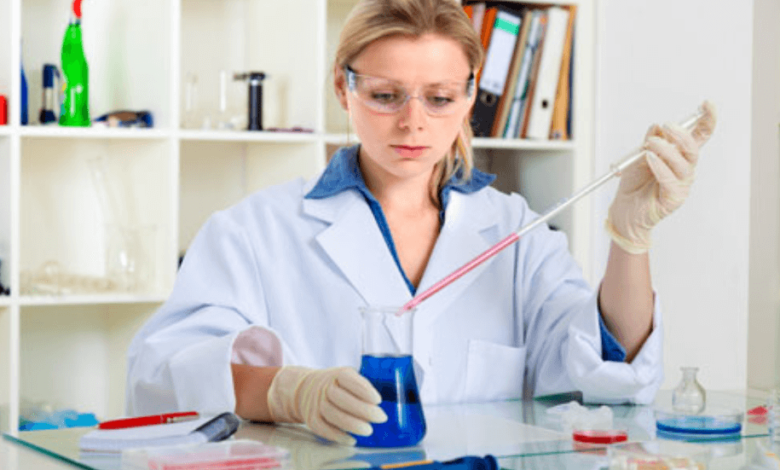How a Reliable Laboratory Equipment Manufacturer Can Shape Scientific Progress

Scientific breakthroughs don’t happen in isolation—they’re the result of meticulous experiments, skilled professionals, and, most importantly, precise laboratory tools. Whether it’s a medical discovery, a chemical formulation, or a physics experiment, the need for trustworthy lab instruments is universal. At the heart of this reliability lies one critical player: the laboratory equipment manufacturer.
Today, the global laboratory ecosystem is more competitive, innovative, and quality-focused than ever before. As laboratories evolve to meet modern demands, they must partner with manufacturers who not only provide tools but also ensure accuracy, efficiency, and longevity. In this article, we explore why choosing the right laboratory equipment manufacturer is a cornerstone of research excellence and industrial success.
What Does a Laboratory Equipment Manufacturer Really Do?
At its core, a laboratory equipment manufacturer is responsible for designing, developing, and producing the instruments that power scientific investigation. These instruments span a wide range—from simple glassware and microscopes to advanced spectrophotometers, environmental chambers, and bioreactors.
But the role doesn’t stop at production. Leading manufacturers also conduct rigorous product testing, offer technical support, provide user training, and often co-develop custom solutions tailored to specific industries. Essentially, they don’t just build tools—they enable innovation.
See also: Noninvasive Prenatal Testing (NIPT): A Safer Way to Screen Your Baby’s Health
The Growing Importance of Equipment in Modern Labs
Today’s laboratories are more technologically advanced than ever before. Research facilities, diagnostic labs, food testing centers, and industrial quality control units rely on equipment that can deliver precise, consistent results.
A reputable laboratory equipment manufacturer keeps pace with these evolving requirements by:
- Incorporating automation and digitization
- Integrating AI and data analytics
- Ensuring regulatory compliance (e.g., ISO, CE, GMP)
- Supporting cloud connectivity and real-time monitoring
By delivering these capabilities, manufacturers help laboratories improve productivity, reduce human error, and comply with industry standards.
Key Qualities of a Reliable Laboratory Equipment Manufacturer
With so many manufacturers available globally, choosing the right one can be a challenge. However, the most respected companies share certain characteristics that make them stand out.
1. Proven Industry Experience
An established laboratory equipment manufacturer brings years—often decades—of experience across diverse scientific sectors. Their longevity is usually a testament to their product quality and customer trust.
2. Broad Product Portfolio
A comprehensive product lineup, ranging from basic instruments to high-end analytical tools, indicates a manufacturer’s capability to serve multiple markets including pharmaceuticals, environmental science, agriculture, and education.
3. R&D Investment
Top manufacturers invest significantly in research and development. This leads to innovation in product design, enhanced functionality, and tools that align with future trends.
4. Customization Options
Not every lab has the same requirements. Manufacturers who offer customized instruments, software flexibility, or modular upgrades provide a more tailored and scalable solution for lab professionals.
5. Post-Sales Support
An exceptional laboratory equipment manufacturer will always offer comprehensive after-sales service, including technical support, warranty management, repair services, and calibration assistance.
Meeting Global Standards and Certifications
Compliance with global standards is a non-negotiable trait of a trustworthy manufacturer. Whether you’re running a pharmaceutical plant or an academic lab, having certified equipment is crucial.
Common certifications include:
- ISO 9001 – Quality management
- ISO 13485 – Medical device manufacturing
- CE Marking – European safety compliance
- GMP/GLP – Good manufacturing/laboratory practice adherence
When a manufacturer adheres to these standards, it guarantees the safety, reliability, and repeatability of their instruments, which is essential for sensitive experiments and regulated environments.
Why Location Still Matters
While globalization has made it easier to source equipment from anywhere, the location of your laboratory equipment manufacturer can still play a role. Local or regional manufacturers often provide quicker delivery times, more responsive service, and better alignment with regulatory norms.
However, global manufacturers with well-established distribution and support networks can overcome these challenges. Many leading international manufacturers operate through local representatives, service centers, and multilingual teams to bridge geographic gaps.
Technology Trends Shaping the Manufacturing Process
Leading laboratory equipment manufacturer brands are constantly innovating. Some of the most impactful trends include:
✔ Smart Instruments
Equipment that connects to cloud platforms or internal networks allows for remote monitoring, automated reporting, and predictive maintenance.
✔ Eco-Friendly Manufacturing
Sustainable production processes, recyclable materials, and energy-efficient machinery are becoming standard in progressive companies.
✔ Compact and Modular Designs
Today’s labs often face space constraints. Manufacturers are responding with compact units, modular systems, and multipurpose instruments.
✔ Artificial Intelligence and Automation
AI-assisted calibration, smart alerts, and automatic sample handling are rapidly being integrated into newer models.
Real-World Applications Across Sectors
🧪 Pharmaceutical Labs
Require high-precision instruments for drug development, stability testing, and quality control. The right manufacturer provides validated tools for all stages of production.
🧬 Biotechnology Firms
Use centrifuges, PCR machines, and electrophoresis equipment for molecular research. Manufacturers must support advanced bioanalytical processes.
🌍 Environmental Testing Labs
Depend on accurate water and soil analysis. Instruments must meet EPA and ISO standards.
🏥 Clinical and Diagnostic Centers
Use hematology analyzers, biochemistry machines, and spectrophotometers. Equipment should be easy to sterilize, operate, and integrate with hospital software.
🎓 Educational Institutions
Need affordable, durable, and easy-to-use instruments. A good laboratory equipment manufacturer often has special models tailored for teaching labs.
Choosing the Right Partner: A Checklist
Before you commit to a laboratory equipment manufacturer, consider asking:
- Do you offer warranties and after-sales services?
- Are your products internationally certified?
- Can your instruments be customized?
- What training or technical support do you provide?
- Do you have experience in my industry?
- How do you handle urgent maintenance or part replacement?
This checklist will help you separate transactional vendors from long-term partners.
Testimonials That Speak for Themselves
Many satisfied users across the world have benefited from working with professional manufacturers:
- “Our lab upgraded to equipment from a trusted laboratory equipment manufacturer and saw immediate improvements in test consistency and maintenance needs.” – QC Manager, Malaysia
- “The manufacturer didn’t just sell us instruments—they trained our team, offered remote diagnostics, and ensured we passed our audit.” – Clinical Director, Nigeria
- “Their modular system design helped us expand our research capabilities without rebuilding the entire lab.” – R&D Scientist, Canada
Final Thoughts
In a world where the smallest error in measurement can derail months of research, working with a reliable laboratory equipment manufacturer is not a luxury—it’s a necessity. Whether you run a small university lab or a multinational research facility, the quality of your instruments directly affects the quality of your outcomes.
A trusted manufacturer goes beyond supplying equipment. They ensure compliance, support innovation, and walk with you every step of your scientific journey. Choosing the right partner today can mean fewer disruptions, better data, and greater success in the future.




